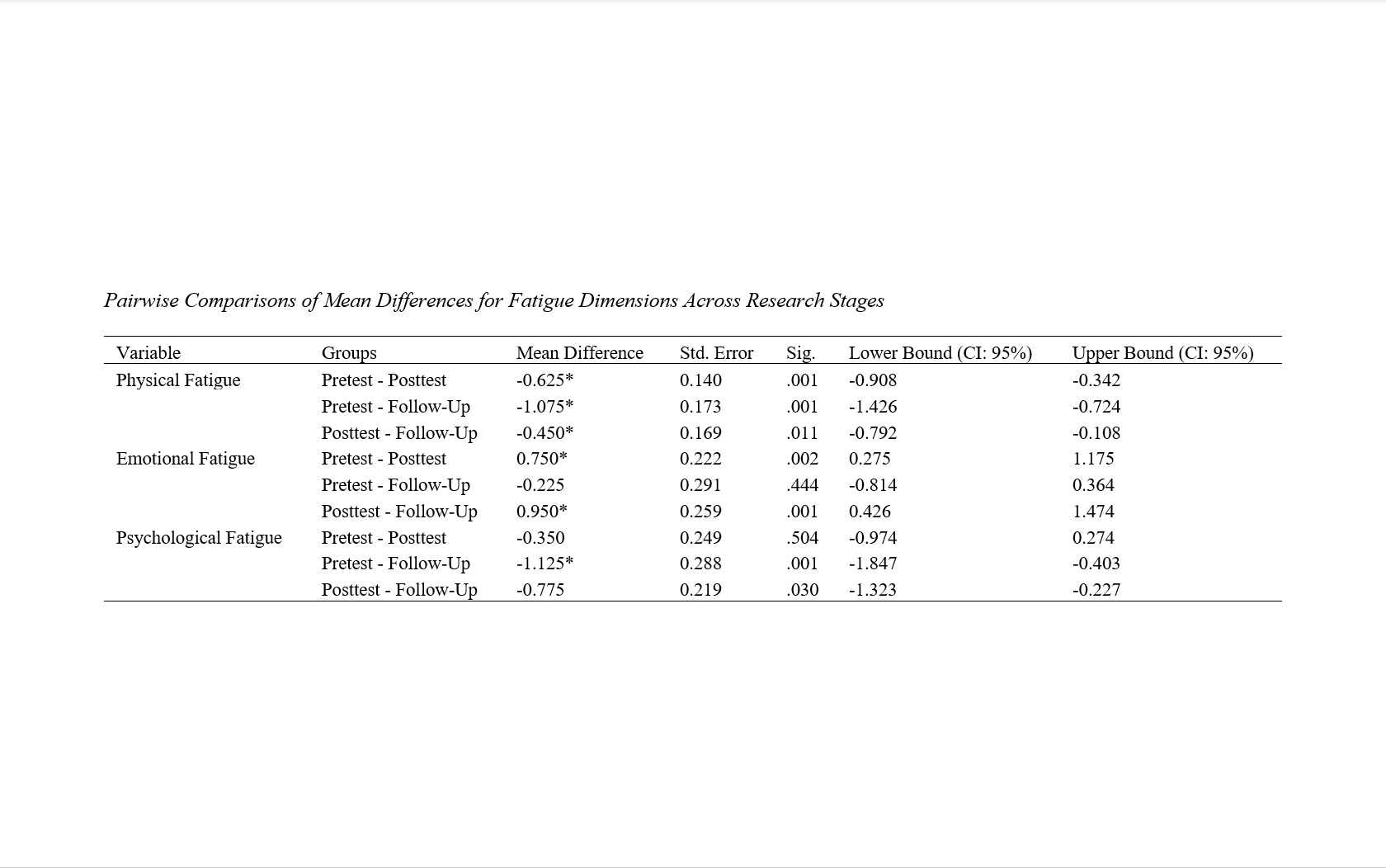Comparison of the Effectiveness of Cognitive-Behavioral Therapy and Metaphor Therapy on Marital Burnout in Women with Marital Conflicts
Keywords:
marital conflict, metaphor therapy, marital burnoutAbstract
Objective: The purpose of this study was to compare the effectiveness of cognitive-behavioral therapy (CBT) and metaphor therapy on marital burnout in women with marital conflicts.
Methods: The research method was quasi-experimental with a pretest-posttest design, a control group, and a three-month follow-up period. The statistical population included women with marital conflicts who visited counseling centers in Shiraz in 2023. A total of 60 participants were selected voluntarily and randomly assigned to two experimental groups and one control group. The research instrument was the Marital Burnout Questionnaire (Pines, 1996, CBM). The educational interventions, based on the cognitive-behavioral approach (Gehart, 2012) and the metaphor-based approach (Coup, 2013), were conducted in eight 60-minute sessions for the two experimental groups. Data were analyzed using repeated-measures ANOVA.
Findings: The results indicated a significant difference in the posttest and follow-up stages between the control group and the CBT group (p < .001) and the metaphor therapy group (p < .001). The effectiveness of CBT and metaphor therapy in improving marital burnout was 59.6% and 29.7% in the posttest, and 69.2% and 34.8% in the follow-up stage, respectively. Additionally, the findings showed a significant difference between the two experimental groups in both the posttest and follow-up stages, with differences of 26.3% and 37.1%, respectively.
Conclusion: Based on the findings, it can be concluded that both CBT and metaphor therapy lead to improvements in marital burnout among women. Family therapists can utilize these educational approaches to enhance marital relationships in couples experiencing conflicts.
Downloads

Downloads
Additional Files
Published
Submitted
Revised
Accepted
Issue
Section
License
Copyright (c) 2024 Mahrooz Parvizi (Author); Mahin Askari (Corresponding Author); Emad Yousefi (Author)

This work is licensed under a Creative Commons Attribution-NonCommercial 4.0 International License.




















